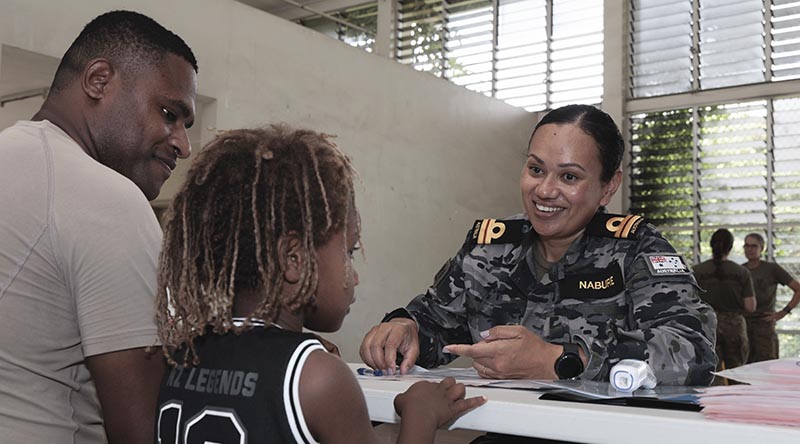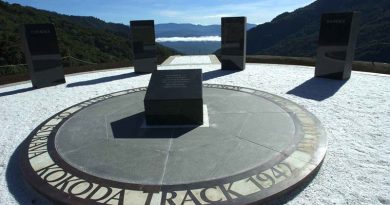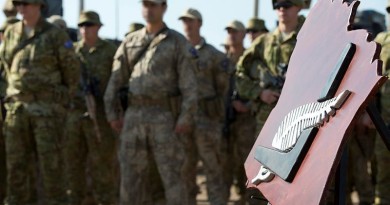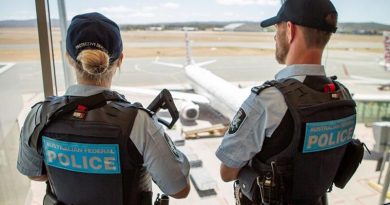Scientific team surveys health in PNG

Bringing science to the heart of Papua New Guinea, the ADF Malaria and Infectious Diseases Institute spent several weeks conducting health surveys across PNG.
CAPTION: Lieutenant Donna Nabure, from the Australian Defence Force Malaria and Infectious Diseases Institute team, talks with a Papua New Guinea Defence Force member and his child during a health survey. Story by Flight Lieutenant Claire Campbell. Photo by Corporal Samuel Miller.
Supported by the Defence Pacific Air Program (DPAP), the institute travelled to Manus and Port Moresby to conduct blood sampling and analysis of PNG Defence Force personnel and their families.
The triservice team comprised clinicians, scientists and operational staff, including scientific officer Captain Joanne Kizu, who said that without DPAP airlift support, travelling across PNG would have been near impossible.
“We screened the PNGDF personnel and families for a number of infectious diseases including malaria, chikungunya, Ross River, Barmah Forest, dengue and Japanese encephalitis,” Captain Kizu said.
“To run a project like this takes a fair amount of equipment and consumables.
“Royal Australian Air Force personnel in PNG were amazing at assisting us.”
In countries with a higher prevalence of malaria and other infectious diseases, such as PNG, surveys are important to support local health clinics to inform clinical management of patients.
Commanding Officer of the ADF Malaria and Infectious Diseases Institute Lieutenant Colonel Brady McPherson said the survey results were also provided to the PNGDF Director Health Services to better understand the health status of their force and guide population health programs.
“Our work helps us to understand the risk of infectious diseases in our region, and informs ADF force health protection policies,” Lieutenant Colonel McPherson said.
“This is a partnership between the PNGDF and ADF, and we have worked closely to achieve the outcomes of the survey.”
The institute’s team uses a substantial amount of laboratory equipment to determine the presence of parasites in the blood, including microscopes and polymerase chain reaction machines.
Nursing officer Lieutenant Donna Nabure said she was able to put theory into practice from her university studies, and engage closely with PNGDF personnel.
“I’m originally from Fiji and have been assisting with cultural liaison within PNG and any public engagement,” she said.
“It’s a rewarding and fulfilling experience – an honour to build the regional partnership and strengthen our relationship with the PNG Defence Force.”
.
.

.
.





